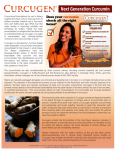“Strategic shift” sees DSM’s biosuccinic acid interests shift to the microbiome

The decision ends the 2012 agreement in which the DSM and Roqutte owned firm Reverdia will continue ingredient production at its plant in Cassano, Italy. DSM will become the exclusive licensor to prospective customers.
“The Reverdia joint venture has proven Biosuccinium technology to be the most sustainable and competitive bio-succinic acid on the market today,” said Atul Thakrar, president of bio-based products and services at DSM.
“We have gone well beyond the start-up phase and the Biosuccinium brand will continue to grow under the leadership of our partner Roquette.
“This is an example of DSM doing what it does best — establishing market-leading technologies and commercializing them.”
Bio- succinic acid is a molecule that has applications in a range of markets including the dietary supplement, food and pharmaceutical industries.
It can be used as a food additive, flavouring agent, and dietary supplement that is said to aid in alleviating symptoms related to menopause such as hot flashes and irritability.
In a statement issued by Reverdia, the firm said DSM’s technology had “matured to a point where the roll-out potential was significant enough to warrant a focused effort on licensing”.
Integrating Biosuccinium products
Bruno Plancke, vice president of the industry global business unit at Roquette, echoed those words adding, “After the success of the collaboration with DSM through the joint venture, we will integrate the Biosuccinium product line within our global business organisation. Our sales force will continue to support our customers’ growth.”
The product will include customer service, order processing, and marketing and sales as these operations become integrated into Roquette’s existing business, effective from 1 April 2019.
DSM’s move away from the start-up aspect of bio-succinic acid production suggests its focus is shifting towards the early stages of other emerging sectors.
Through its venture investment arm, the Dutch-based firm recently made its interest in the skin microbiome clear with financial support backing the efforts of Belgium-based life sciences company S-Biomedic.
The outlay includes investment in its Culturelle product range, which uses Lactobacillus rhamnosus GG to aid in good digestive and immune health.
In a company statement, S-Biomedic said the funds would enable the firm to “rapidly progress their portfolio of products and enter into development and commercialisation agreements with leading dermatological and cosmetic brands.
DSM Venturing moves
DSM Venturing has invested in more than 50 emerging innovative companies since its inception in 2001.
Its current portfolio includes commitments to nutrition-based firms such as Mixfit to deliver personalised nutrition solutions delivering micronutrients whilst analysing health data in real time.
In May 2018, Mixfit launched the prototype of its Intelligent Nutrition Assistant (Mina) that analyses a person's genetic makeup, diet, lifestyle and health goals.
The data is then used to create and dispense beverages containing a customized mix of vitamin and mineral blends throughout the day. The US launch of Mixfit is scheduled for the second quarter of 2019.
In April, DSM made an investment in Tespo, a US-based start-up that offers consumers a simpler way to take vitamins by providing these in a pill-free, liquid format dispensed at home.
During the year, DSM also acquired a venturing stake in Biomarker Labs. Its Biomarker app streamlines health information from wearable, sensor, lab or health apps to measure the effectiveness of dietary supplement brands.
In August, DSM announced plans for the world's only premix manufacturing facility created for the maternal and infant nutrition market.
Located in Buk (Poland) at the firm’s existing premix site, the investment is expected to double production output at the site within the next two years.
Following the addition of probiotics to DSM’s gut health offering via the acquisition of BioCare in December 2017, the firm has now integrated this business into its microbiome-based interests.















